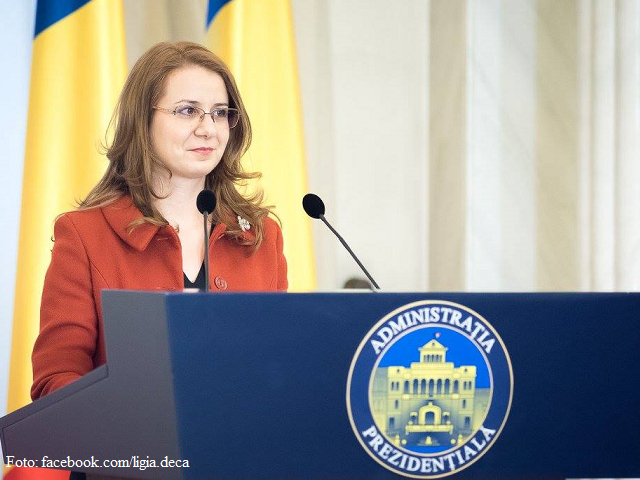New Education Draft Laws
Increasing the quality of education and reducing functional illiteracy are the main objectives of the new Education Laws presented by education minister Ligia Deca.

Daniela Budu, 28.02.2023, 14:00
After having been analyzed by experts from the ministry and representatives of the governing coalition in Romania for several months and after almost ten thousand amendments, the new draft education laws were presented on Monday by Minister Ligia Deca. Based on the Educated Romania project and on the reports of OECD experts, as the minister showed, the projects are aimed at increasing the quality of education and reducing functional illiteracy. The proposed changes come against the background of worrying figures that place Romania at the bottom of the European ranking in terms of educational performance.
Ligia Deca: “Five out of ten 15-year-old students have mathematical skills, and skills in the field of sciences respectively, below the minimum level of performance, that is, they cannot use logical thinking in everyday situations or cannot explain familiar scientific phenomena or processes. Four out of ten students, also 15 years old, have reading skills below the minimum level of performance, as defined in the context of the PISA study, that is, they read a text and cannot easily formulate conclusions. Two out of ten participants in the Baccalaureate exam did not pass it, and we also know that three out of ten science teachers rarely connect the lessons or the theoretical part with what the students can observe in everyday life, and six out of ten have not attended any modern methods science teaching course in the last two years.
According to the pre-university education bill, one of the important changes will be that the high schools in high demand will be able to organize separate admission exams for more than half of the places.
Ligia Deca explains: The National Assessment will include tests in the Romanian language, mathematics and, as the case may be, the mother tongue, consequently, the current format will not be changed. The new element is the possible high school entrance examination. Again, if the high school wants and if it can demonstrate that, in the previous years, it received applications from a very high number of students, for those teaching subjects for which there is this demonstrated competition, 60% of the places can be filled following an exam.
Regarding the Baccalaureate exam, there will be a complementary test of basic skills in addition to the current form. The new draft Education Laws provide, among other things, for the increase in the merit scholarships and in those for Olympiad winners, as well as for progressive salary increases for the teaching staff. Politicians, trade unions and parents’ associations accused the education minister of lack of transparency and blamed her for not having organized consultations with those interested regarding the future education laws.
The opposition Save Romania Union – USR believes that the changes presented by minister Ligia Deca cannot be part of a program entitled Educated Romania and cannot modernize the education system. The Prime Minister, however, believes that the two draft laws, which regulate pre-university and university education, will introduce norms and practices from European states with old traditions in education and with good results on an international level. (LS)






























